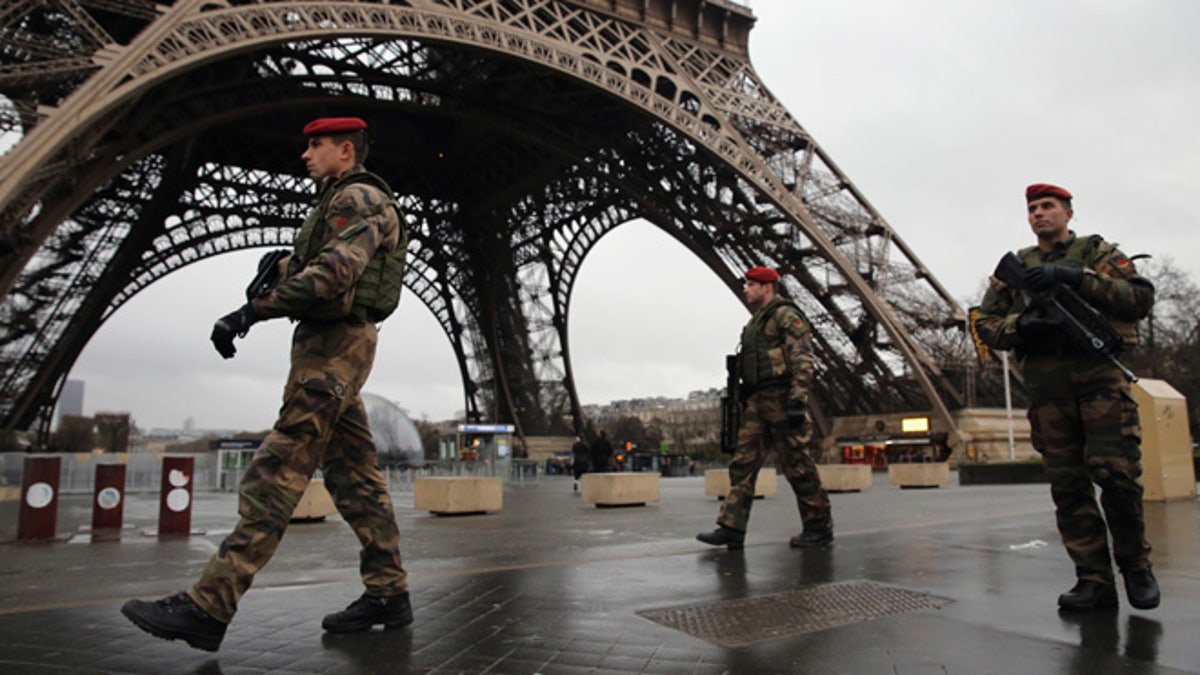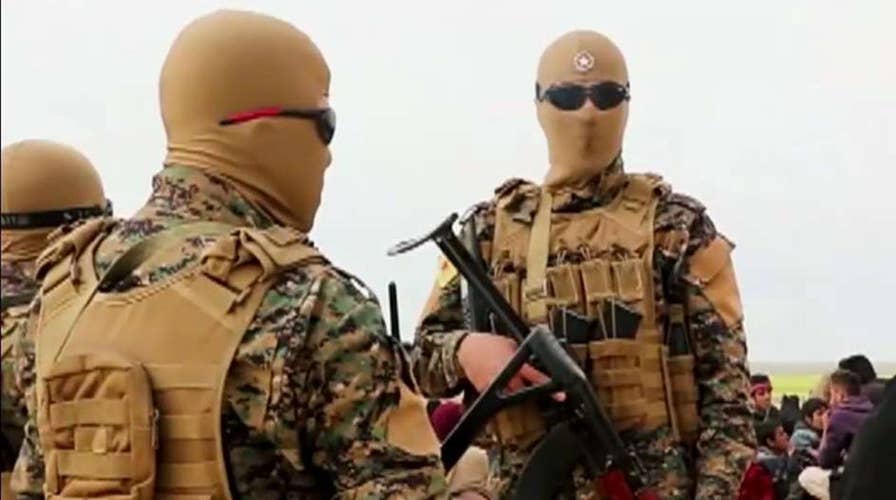Pentagon warns of ISIS resurgence in Syria
ISIS resurgence in Syria after U.S. troop cuts; Lucas Tomlinson reports.
Despite being driven from its former Iraq and Syria strongholds six months ago, ISIS continues to find ways to wreak havoc across the Middle East, remaining an innovative -- if less strategically successful -- terror force.
According to a new report from The Heritage Foundation, “The Post-Caliphate Terror Threat in Europe – and the Need for Continuing U.S. Assistance,” ISIS' territorial defeat can be directly equated with the decline in attacks; but, the author also notes, the threat landscape has changed.
“America’s strategy has worked: It took almost four-and-a-half years, but the Islamic State’s self-proclaimed caliphate in Syria and Iraq has been dismantled. Yet the threat from ISIS is far from over,” the report, authored by Heritage National Security and Foreign Policy fellow Rob Simcox, states. “Increased focus is now being placed instead on the danger that ISIS is likely to pose as an insurgency.”
ISIS SLEEPER CELLS BURN, BLOW UP AND SLAUGHTER HUNDREDS IN UPTICK OF ATTACKS ACROSS IRAQ AND SYRIA
The total number of attacks on European soil has declined since 2014, the year ISIS emerged and undertook a stunning campaign that won it large swaths of territory across Iraq and Syria.
In 2014, Europe was targeted with 16 Islamist attacks and plots, the number rising to 44 in 2015 and then up to 84 in 2016 – the height of ISIS' influence before major efforts were undertaken by numerous world powers to force the terrorists from their operations base. In 2017, the attacks in Europe decreased slightly to 78 attacks and plots, followed by 41 in 2018 and, so far in 2019, just 16.
The report credits improved intelligence sharing and the destruction of the so-called caliphate for disrupting the group's ability to consistently export terror to Europe.
“Removing ISIS from its caliphate appears to have had positive consequences for European security: As of mid-June 2019, there has not been a major, coordinated attack in Europe since fall 2017. However, more unsophisticated Islamist operations continue, with 21 injured and three killed in four separate attacks so far this year,” the report says. “Yet there was evidence that terrorists and terror suspects were getting even more creative with their European plots in 2018, and the threat picture was growing more diverse.”

Armed security patrols around the Eiffel Tower on January 9, 2015 in Paris, France. (2015 Getty Images)
The report underscores the three chemical, biological, radiological or nuclear terror plots in Europe in 2018 -- despite none in the previous four years. All involved ricin, with one plot also involving anthrax.
“Also striking was an arrest made in the U.K. in the summer of 2018 to prevent an alleged plan to deploy drones as part of a broader Islamist plot,” Simcox continued. “Another unusual plot saw multiple attempts to derail trains in Germany. An Iraqi refugee and his associates are suspected of placing steel rope and cement blocks on train lines carrying high-speed trains.”
INSIDE VENEZUELA’S TORTUROUS INTELLIGENCE AND DRUG-RUNNING BRANCH SEBIN
The “Post-Caliphate Terror Threat” also acknowledges that several hundred fighters who fled Europe to join ISIS during its bloody reign were never caught, and, as the caliphate began to collapse, smugglers transported ISIS fighters, both foreign and local, and their families to Turkey, where they were ordered to lie low.
Some chose to enter (or re-enter) Europe, exploiting well-traveled migrant routes, the report states, noting that “European security officials have speculated that a host of other countries— ranging from Afghanistan to the Maldives—could serve as potential bases where foreign fighters can lie low after the loss of the caliphate.”
Simcox also stressed the importance of the U.S. remaining deeply engaged in the counterterrorism effort, and working closely with European partners to stay on top of emerging threats. But Simcox cautioned the “U.S. should also certainly not be making public proclamations of defeating ISIS, which is a very premature statement and only invites complacency.”
As for Europe, there's still a lot of work ahead, according to the report.
“[Europe] needs to adopt an aggressive and wide-ranging approach to counterterrorism. It needs to pass legislation where necessary that enables it to either prosecute or deport national security threats; continue to improve intelligence sharing; focus on improving integration and assimilation; develop de-radicalization initiatives, including in prisons; control mass immigration; shut down terrorist financing; and contribute militarily where appropriate in the Middle East, Africa, Asia when Islamist groups threaten Western security,” Simcox wrote. “It must do so all the while being cognizant of the need to try and defeat the ideology that animates these Islamist groups.”









































